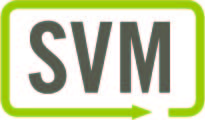Can you give our readers an overview of your company and its role within the payments industry?
Over the last twenty years, SVM has become an established, global leader in providing innovative gift card solutions for business. Our comprehensive products and services are used by a global client base to incent and reward their customers, employees, and prospects. We offer over 350 of the world’s most recognized brands including retail gift cards, eGift cards, network prepaid cards, gasoline, promotional and reward cards as well as award codes and more. In addition to our role as “program manager”–where our clients benefit from lower costs, maximized gift card sales, and minimized administrative, legal, and regulatory compliance risks and responsibilities–our services also include production, inventory management, fulfillment, customer service, and key brand internet landing page hosting. We assist major retail brands by marketing their products to our tens of thousands of business-to-business customers, both here and globally through our offices in the United Kingdom. With the acquisition of 1to1 Card, we enhance the company’s complete range of value-added gift card services, providing a single source for both open and closed loop cards with customization capabilities for a wide variety of products.
How will the acquisition of 1to1 Card benefit both SVM and 1to1 Card clients?
SVM customers will benefit by an enhanced suite of open loop products that 1to1 Card customers have come to know and expect. Similarly, 1to1 Card customers will have immediate access to more than 350 gift card brands. Both customers will enjoy a single source procurement experience, and improved response times from a nimble, customer-focused, and integrated card solution provider.
Why did SVM elect to acquire 1to1 Card instead of just a partnership?
We have procured and marketed open loop cards for years through other partner vendors, but this relationship–in fact any relationship where a product is sourced and resold–has inherent limitations. Rather than change or add an additional partner, we saw an opportunity to remove barriers to growth and to improve the customer experience through the acquisition of 1to1 Card. By standing in as program manager, and leveraging the expertise of 1to1 Card, we can incrementally build on 1to1 Card products and bring an enhanced level of innovation and flexibility to the product set for which SVM has long been known.
In the press release it mentions that the acquisition will see many benefits for your customers including superior economics and incremental products. Can you give us a few specific examples of this?
The examples are prevalent in nearly all of our interactions with our existing and prospective customers. Both 1to1 Card and SVM have numerous customers that are seeking to source both open and closed loop products from a single, trusted supplier. Through SVM’s acquisition of 1to1 and the cross integration of our respective products, we deliver a streamlined distribution model that benefits the customer through efficiency that not only helps our customers save time and money, but also helps us maintain a favorable position in an evolving competitive landscape. Ultimately, whether we are supporting our customers in the incentive, rewards, loyalty or rebate channels, the new SVM is uniquely positioned to deliver upon the demand that is present in the market today.
As the payments industry continues to evolve what changes do you envision happening over the next two years?
Speaking in terms of the US market, we find ourselves in the greatest demographic shift since the Baby Boom era. Younger, Millennial era Americans who, according to a Cone Communications Social Impact Study, account for more than $1 trillion in consumer spending will be the single greatest influence on our industry. How they shop and pay will drive the acceptance, delivery and use of digital products. From a pure payments point of view, despite a fragmented digital wallet and point of sale environment, Millennials will be the driving force in terms of consumer acceptance and the result will be a level of standardization for both mobile payments and acceptance at the point-of-sale.











